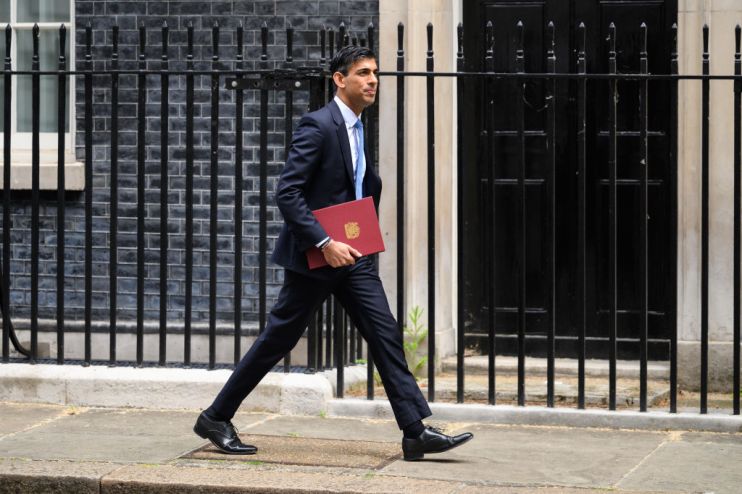Sunak’s care package prevents severe UK living standards shock

Chancellor Rishi Sunak’s energy shock care package will prevent a severe erosion of living standards among the UK’s poorest households.
That’s according to top wonks’ assessments of today’s round of measures designed to cushion the hit to households from soaring inflation and energy bills.
Paul Johnson, director of the Institute for Fiscal Studies (IFS), said: “Rishi Sunak has announced a genuinely big package of support for households. On average the poorest households will now be approximately compensated for the rising cost of living this year.”
The IFS calculates a worker on average earnings of around £29,000 “will now see their real take-home incomes stay approximately the same this year as last”.
Sunak today turned the previously announced energy bill loan into a grant and doubled it to £400. He also said the government will give those on means-tested benefits a one-off £650 cash payment and those on disability benefits – many of whom will also receive the £650 payment – an additional £150.
Pensioners entitled to the winter fuel allowance will also receive £300.
The National Institute of Economic and Social Research said earlier this month a further 250,000 households will tip into extreme poverty without further government action.
“The overall effect of policies coming into effect this year… is much more progressive, delivering an average cash gain to households in the bottom [income] quintile of £1,195,” the Resolution Foundation (the Foundation), said.
However, “the relative lack of support for larger families stands out,” Torsten Bell, chief executive of the Foundation, added.
The measures may fuel already four-decade high inflation by injecting billions of pounds into an overheating economy, others warned.
The nominal cash injection of £15bn into an economy “currently operating above capacity… will probably indirectly feed into higher inflation,” according to Paul Dales, chief UK economist at Capital Economics.
Prices have climbed nine per cent over the last year, the fastest acceleration since 1982, primarily driven by Russia’s invasion of Ukraine sending global energy costs soaring.
Sunak’s support package, alongside a further 40 per cent upgrade to the cap on energy bills in October, prompted Capital Economics to upgrade their 2023 inflation forecast 0.5 percentage points to 4.8 per cent.
In order to combat the inflation bump from the fiscal stimulus, “the Bank of England [may have] to pull the interest rate lever harder to reduce inflation,” Dales added.
The Bank has already lifted rates from a record low 0.1 per cent to a 13-year high of one per cent in the space of six months.
The package will heap extra pressure on the UK’s already battered public finances due to it not being wholly funded through taxes.
Dales said the government will have to borrow £10bn more this year to fund the package. The UK’s stock of debt is already around 96 per cent the size of the economy.
Sunak also launched a tax raid on the windfall profits of oil and gas producers, forecast to raise £5bn this year.
He upgraded the oil and gas sector’s investment allowance, allowing them to claw
back around 90 per cent of every £1 they invest through tax reliefs.